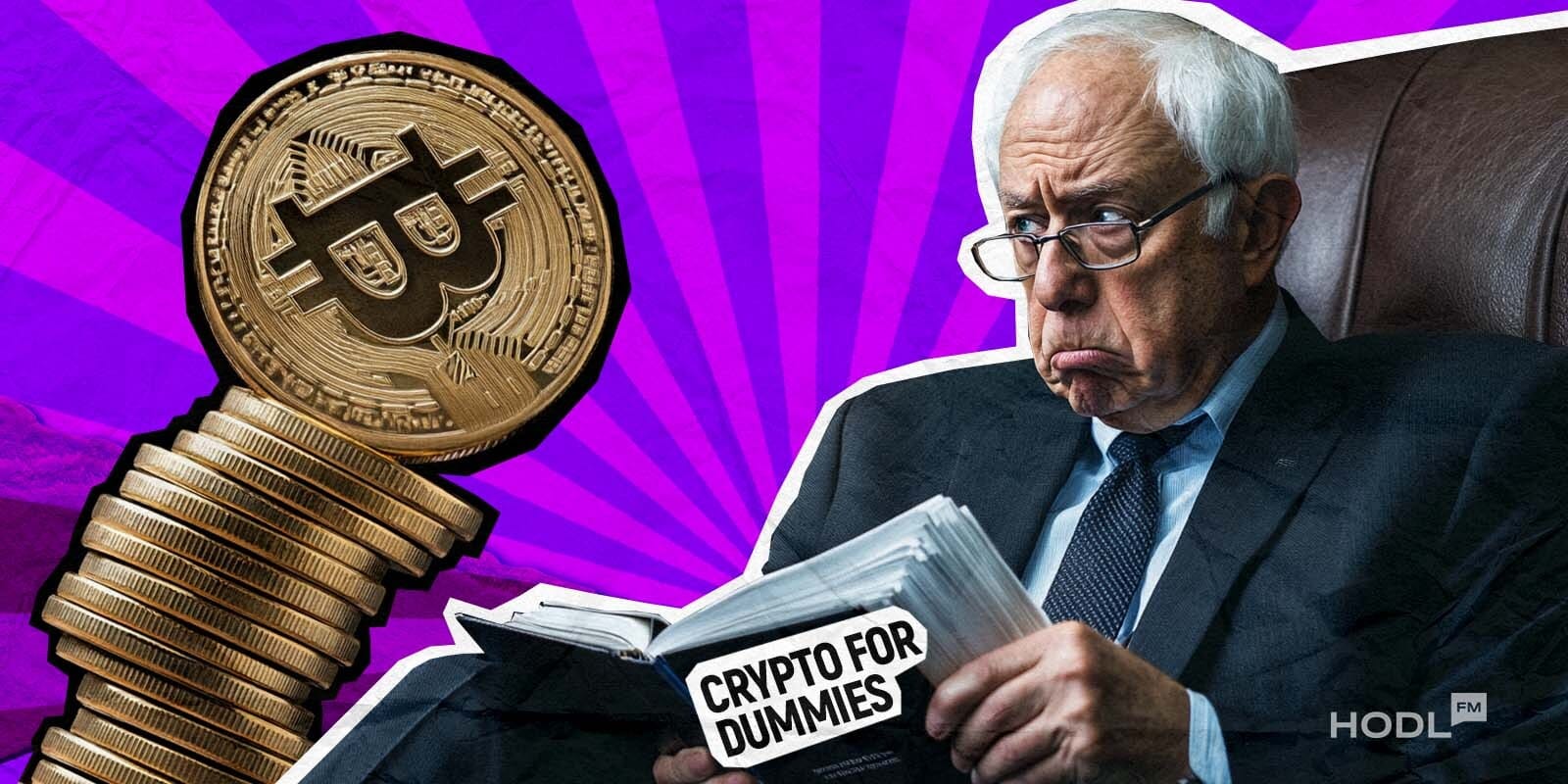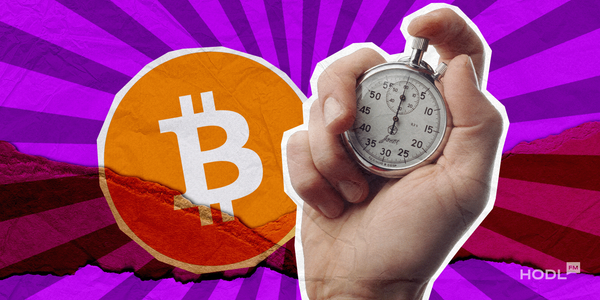Donald Trump, the former US President who can’t get enough of the White House, is known for his provocative and controversial claims. The man once suggested that noise from wind turbines causes cancer, proposed that injecting disinfectants into your veins could treat COVID-19, and insisted that climate change is a hoax "created by and for the Chinese." He was also a vocal critic of cryptocurrency, but he has now embraced it as a part of his campaign strategy.
Yes, he is consistent in being inconsistent.
His transformation from skeptic to crypto advocate is actually a reflection of a large-scale political shift within the Republican Party. But what does Trump’s sudden support mean for the future of crypto? Is the likely new president of the world’s 1st superpower really a pro-crypto guy now? What might a second Trump presidency mean for an industry that faces increasing regulatory pressure? Let’s brainstorm.
The Land of Skepticism and Regulations
The relationship between cryptocurrency and U.S. regulators has been rocky, to say the least. The most prominent regulatory body overseeing cryptocurrency, the Securities and Exchange Commission, better known as SEC, has taken a cautious, sometimes even antagonistic approach to the sector. Under Chair Gary Gensler, appointed by the Biden administration, the SEC has launched high-profile lawsuits against giants like Ripple and Binance and accused them of bypassing investor protections by trading unregistered securities. The SEC has also rejected multiple attempts to launch Bitcoin ETFs, although a federal court ruling in 2023 forced a reconsideration of those decisions.
The Biden administration has approached cryptocurrency with caution. They preferred to put the emphasis on risks like volatility and the use of crypto in malicious activities like money laundering. Under Biden’s rule, even key figures within the Democratic Party, like Senator Elizabeth Warren, have been vocal critics of cryptocurrency who framed it as a threat to consumer protections and the financial system. Not the most crypto-friendly guests of the White House.
Trump is pushing his new crypto scam today. pic.twitter.com/wnGDfJSTCp
— Ron Filipkowski (@RonFilipkowski) September 30, 2024
Republicans, on the other hand, have actually aligned themselves with pro-crypto positions. But how sincere are Republicans, and Trump in particular, in their newfound pro-crypto stances? Is crypto really going to be a main item on his agenda? Or is it going to end up like the wall on the Mexican border? The one Mexicans were supposed to pay for. (They haven’t)
Trump’s New Toy or a Real Deal?
Donald Trump’s early views on cryptocurrency were horribly negative. In 2019, during his first term as president, he famously tweeted that he was “not a fan of Bitcoin and other Cryptocurrencies.” He went so far as to claim that cryptocurrencies were “not money” and that their value was “highly volatile and based on thin air.”
I am not a fan of Bitcoin and other Cryptocurrencies, which are not money, and whose value is highly volatile and based on thin air. Unregulated Crypto Assets can facilitate unlawful behavior, including drug trade and other illegal activity....
— Donald J. Trump (@realDonaldTrump) July 12, 2019
His administration’s actions supported these views. Trump’s SEC took a hardline approach, where lawsuits targeted companies like Ripple for alleged violations of securities laws. The Treasury Department under Trump also scrutinized cryptocurrencies, particularly for their potential role in facilitating illegal transactions
As Trump launched his campaign for a second term, his stance had changed dramatically. Speaking at a cryptocurrency conference in Nashville, Tennessee, Trump declared that his goal was for the United States to become the “crypto capital of the planet.” His campaign began accepting Bitcoin donations, and Trump himself launched a series of NFTs, which depicted him in superhero-like poses.
But Why Now?
Trump is a politician. Absurd may they seem, his every move is calculated by an army of professional advisors. Let’s not forget in this election cycle the growing influence of GenZ and Millennials will be greatly felt. A survey by Stand With Crypto Alliance shows that over half of these voters are likely to support candidates standing for crypto-friendly policies. The demographic shift is pushing political candidates to address crypto more directly, and as a result, crypto policies have become a central issue for many voters.
Cryptocurrency also offers Trump a new political attacking surface to hunt down the Biden administration. Trump has framed Biden’s SEC and its chair, Gary Gensler, as hostile to innovation. He didn’t stop there and criticized their heavy-handed approach to regulation. At the same Nashville conference, Trump vowed to fire Gensler on his first day in office, arguing that the SEC had overreached in its efforts to control the burgeoning crypto sector.
And he is somehow true to his word. For one, the Republican Party has increasingly embraced cryptocurrency as part of a broader pro-business, anti-regulation platform. Senator J.D. Vance, Trump’s running mate, has always been a supporter of crypto, for example.
What Will Happen If Trump Wins?
Trump has made it clear that he views crypto as a key component of his economic agenda. His campaign includes bold proposals, such as creating a government stockpile of Bitcoin and forming a “crypto presidential advisory council” composed of industry insiders.
From that point, a Trump victory would likely result in a deregulatory environment for crypto, in very broad terms. Yet, nor everybody agrees.
#Bitcoin will pump so hard if Trump wins!
— Crypto Rover (@rovercrc) September 22, 2024
But if Kamala wins, we may be f*cked! pic.twitter.com/ouoOHPjRsg
His economic philosophy has been relying on reducing regulatory burdens to stimulate entrepreneurship anyway. Look at his 2017 executive order which mandated that two regulations be removed for every new one introduced. If he returns to the White House, Trump’s promise to “deregulate crypto” would likely initiate a more favorable environment for crypto with fewer barriers to entry for institutional investors and startups.
There are some expert predictions that Trump’s policies could have a positive impact on the value of Bitcoin and other cryptocurrencies. Weakening the U.S. dollar, which is a policy Trump has openly supported as a way to boost U.S. exports, could drive investors toward Bitcoin as a hedge against USD. Remember what the 2020 economic environment was like? Institutional investors flocked to Bitcoin as a store of value, which pumped the BTC prices up.
It’s Now Our Turn for Skepticism
Donald Trump is positioning himself as the new champion of crypto, possibly dethroning Elon Musk. A second Trump presidency would likely lead to a more crypto-friendly regulatory environment, with less oversight from agencies like the SEC and more opportunities for institutional adoption.
But it may not be a straightforward path. Remember, just around five years ago, Trump was “not a fan of crypto.” The fact that the US president made this remark, and not just some average Joe, is a huge deal. It’s set in stone now, and every pro-crypto remark he made and will make from that point is better to be taken with a pinch of salt. Also, his promises of looser regulations could lead to greater volatility and instability in an already unpredictable market.
Selling worthless $100K watches*, and now his own crypto, all of which can be purchased in untraceable transactions...what could possibly go wrong!?
— William Coffin (@CoffinItUp) September 30, 2024
*Not to mention worthless Trump Media Stock... pic.twitter.com/HK9EiyYAtq
For now, one thing is clear: Cryptocurrency is no longer a fringe issue. In the 2024 election, it could prove to be a decisive factor in shaping not only the future of meme coins, but also the general direction of U.S. economic policy.

Disclaimer: All materials on this site are for informational purposes only. None of the material should be interpreted as investment advice. Please note that despite the nature of much of the material created and hosted on this website, HODL FM is not a financial reference resource and the opinions of authors and other contributors are their own and should not be taken as financial advice. If you require advice of this sort, HODL FM strongly recommends contacting a qualified industry professional.




